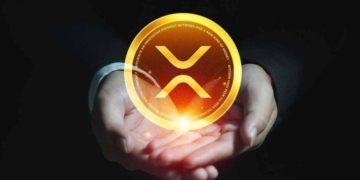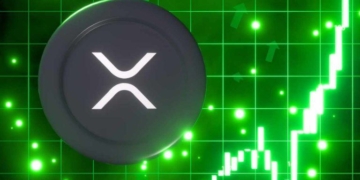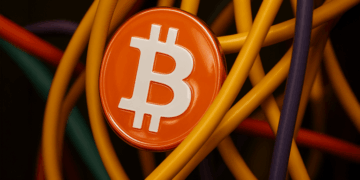
Did Ukraine president Volodymyr Zelensky wear a suit? It should be a simple question, but a dispute over the answer has torn apart bettors on the gambling site Polymarket. With a collective $210 million on the line, some claim to have been denied their rightful winnings.
Polymarket is a platform that allows users to gamble cryptocurrency on the outcome of a particular event, ranging from sports games to election outcomes to niche wagers on movie box office results. Each individual prediction market is framed as a binary question. In this case: “Will Zelensky wear a suit before July?”
After Russia invaded Ukraine in 2022, Zelensky pledged to wear only military-style fatigues in solidarity with frontline soldiers. The Ukrainian leader’s sartorial choices have since become a media preoccupation, criticized in some quarters as disrespectful, particularly after a heated encounter with US president Donald Trump in March.
On June 25, Zelensky was pictured at a pre-NATO summit dinner wearing a black jacket, shirt, and trouser combination with military-style detailing that multiple news outlets—including the BBC and the New York Post—described as a suit. Posts to a Polymarket-affiliated X account and the national Ukraine Instagram page even referred to it as a suit. Yet the Polymarket bet is poised to be resolved to the contrary, leading to an outcry among those who stand to lose their stake.
The discrepancy comes down partly to a dispute over the definition of a suit. “It meets the technical definition,” menswear expert Derek Guy tells WIRED. “I would also recognize that most people would not think of that as a suit.”
But more than that, the bet has become a test case for the efficacy and reliability of Polymarket’s model for crowdsourcing truth. In the event of a dispute, the platform lets holders of a certain crypto token cast votes on the answer. That may work for bets with binary outcomes—a team wins a game or it doesn’t—but invites chaos when many millions of dollars are on the line over more subjective topics, like what constitutes a suit. (“That’s a very weird system,” Guy says.)
Before a prediction market is resolved, Polymarket gives users a two-hour window in which they can lodge a dispute by posting a $750 bond. If a dispute is registered, it falls to Polymarket’s “oracle,” a decentralized financial contracts platform called Universal Market Access (UMA), to vote on a resolution. UMA, which was founded in 2018 and operates independently from Polymarket, resolves these disputes by allowing people or organizations that hold its tokens to vote on what the truth is.
In this case, UMA voters are saying by a seemingly insurmountable margin that Zelensky did not wear a suit.
The problem with such a system, critics claim, is that it’s vulnerable to abuse by so-called whales—holders of large amounts of tokens with an outsized influence over decisions. To avoid having to wade into every Polymarket dispute or otherwise incur a financial penalty for missing a vote, smaller UMA holders frequently loan their tokens to delegates who vote on their behalf, further concentrating the supply. According to data platform Sentora, 95 percent of UMA tokens are controlled by whales. “It’s not decentralized—nowhere near decentralized,” says an independent crypto trader who goes by the username defipolice, who stands to lose roughly $30,000 on his Zelensky bet.
Polymarket did not respond to a request for comment.
Launched in 2020, Polymarket rose to prominence last year as a way for people to bet on the outcome of the US presidential election. During the election cycle, Polymarket and its advocates pitched prediction markets as a superior method for predicting outcomes than traditional polling—as a more efficient “source of truth.” But that proposition has been challenged by the Zelensky suit debacle.
“Everybody knows the answer … but the system is currently broken,” claims defipolice. “It’s a fucked up situation.”
Polymarket does reserve the right to overturn a UMA outcome. Last year, the company overruled UMA voting on a wager over whether Barron Trump was involved in a Trump-themed cryptocurrency project. At the time, Polymarket refunded bettors and explicitly described UMA’s conclusion as “wrong.” The company hasn’t stepped in every time, though. In March, a $7 million bet over whether Ukraine and the United States would reach a deal on mineral access was prematurely resolved with the wrong result. At the time, in a Discord message addressed to affected users, a Polymarket employee called it an “unprecedented situation” but said that it would not refund bettors.
Polymarket users aggrieved by the likely outcome of the Zelensky prediction market are gathering on messaging platform Discord to coordinate a response, potentially including pursuing a lawsuit against Polymarket and UMA, they claim.
“I do intend to join the lawsuit,” says a Polymarket bettor by the username Adversary, who at one stage stood to win $300,000 on their bet, before they pulled out some funds in response to the confusion. “I have experienced moral damages over this debacle and the added context has caused me a great amount of stress.”
People in UMA’s Discord channel are similarly riled by the controversy, with community members accusing each other of “backchannel deals” and scams. Some view it as an unflattering referendum on the entire project. “This isn’t just a vote on a suit—it’s the vote on the future of UMA,” one member wrote.
The final resolution is expected by the evening of July 8. The cofounder of UMA, Hart Lumbur, says the organization is planning to make adjustments to the dispute resolution process in light of the Zelensky suit controversy, but rejects the allegation that the vote has been manipulated in any way.
“There is no evidence of manipulation of UMA. I really don’t like those meritless accusations,” Lambur tells WIRED. “After the dust settles on this suit-or-not market, I’m looking forward to having a productive conversation about improvements and design tradeoffs.”
Others see this kind of disagreement as a natural part of the process: “For me this was a jacket that looked like a suit but wasn’t a suit,” says Lancelot Chardonnet, who voted as a delegate on behalf of the UMA.rocks token pool, which controls around 0.1 percent of the total supply. “This controversy simply reflects that the truth is complex and differs from one person to another.”
All of this heat arrives at a critical moment for Polymarket, which is in the middle of an aggressive fundraising round led by Peter Thiel’s Founders Fund; according to Reuters, the prediction market will be valued at $1 billion. It’s not an ideal time to alienate some of its most active users, or for the integrity of its markets to come into question. “The silence from Polymarket has been deafening,” defipolice says.














